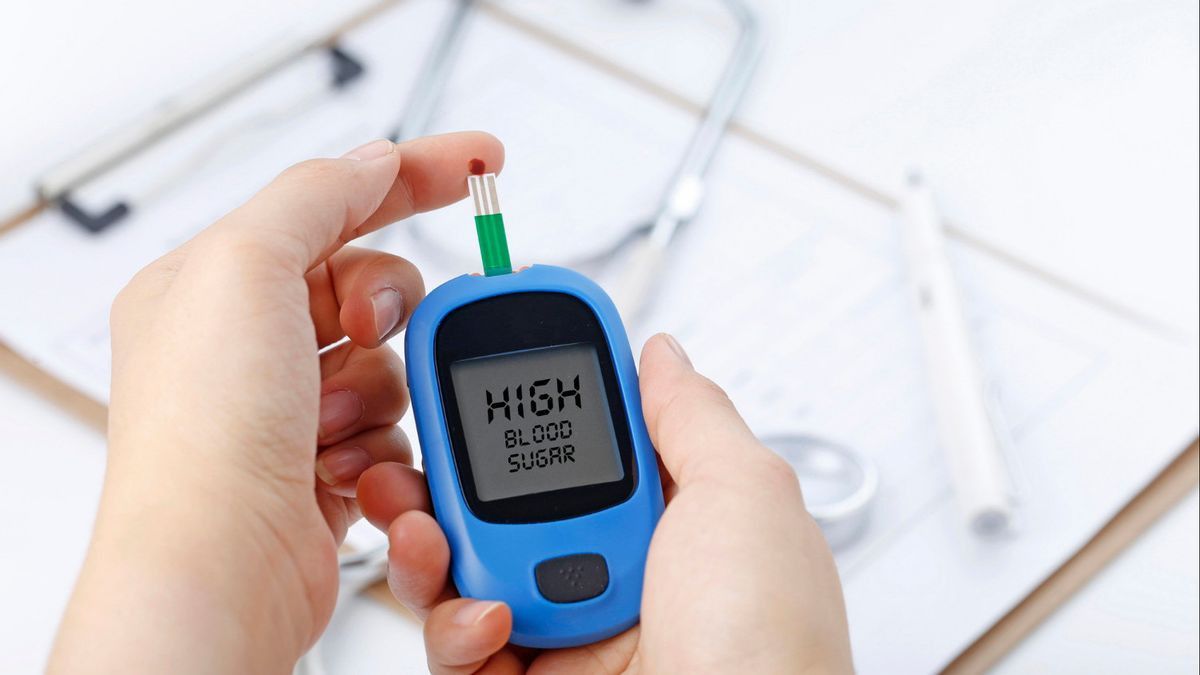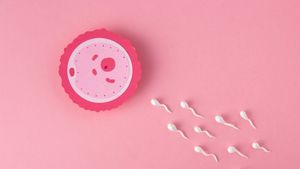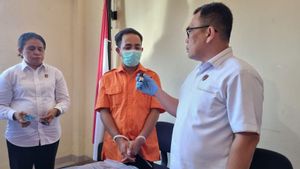YOGYAKARTA - Checking blood sugar needs to be done by everyone to find out their health condition. For diabetic patients, this examination must be carried out to continue to monitor the development of blood sugar levels in their bodies. So how many times do diabetics check blood sugar?
diabetes patients can self-check blood sugar using a special electronic device. How to use this tool is only requiring blood pressure for measurement samples. Later this tool will show digital figures that are information about glucose levels in the blood.
Blood sugar levels can go up and down every day. Many diabetics are wondering how many times they have to check blood sugar. Especially if you want to check blood sugar during fasting, then how many times should you do it?
Medical personnel will notify about the intensity or number of times diabetic patients have to check blood sugar. The frequency of the examination is usually adjusted to the type of diabetes experienced and the treatment plan.
Type I diabetics may be recommended to check blood sugar 4-10 times a day. Here are some options for the time you can choose to undergo a blood sugar test:
Health workers may recommend blood sugar tests several times a day if you have type 2 diabetes. How often you have to do blood sugar levels depending on the type and amount of insulin used.
Checking blood sugar levels is recommended before eating and before bed if you do some daily injections. If you only use medium or long-term insulin, you may just need to check blood sugar before breakfast or before dinner and sleep.
Meanwhile, if you have type 2 diabetes with non-insulin drugs or just diet and exercise, you may not need to check blood sugar every day.
The activity of checking blood sugar during fasting does need to be considered considering having to fast. Internal medicine specialist, Muhammad Ikhsan Mokoagow, submitted a recommendation time to check blood sugar levels during the fasting month.
Doctor Muhammad Ikhsan said there are several options for time to choose to check blood sugar independently when fasting. Diabetics are more advised to check blood sugar levels in the morning or evening and evening.
"In general, it can be examined before dawn, then two hours after dawn, namely in the morning, for example around 5.6, maybe at 7 o'clock," said Doctor Ikhsan as quoted by Antara.
Blood sugar tests can also be carried out after breaking the fast. Examination is carried out at these hours so that you can find out how high blood sugar levels are after consuming various types of food. In addition, blood sugar checks can also be done during the afternoon or noon to find out the high blood sugar when fasting.
If people with diabetes feel symptoms of hypoglycemia (low blood sugar) or hyperglycemia (high blood sugar), it is recommended to immediately check blood sugar. So blood sugar checks can be done outside of the times above for those who feel these symptoms.
"It is recommended for a diabetic to be allowed or even highly recommended to check if there are hypoglycemia or hyperglycemia complaints. So if, for example, feel weak, beat, sleepy, please check it quickly even outside the recommended time," said Ikhsan.
According to Doctor Ikhsan, how often a person with diabetes has to check blood sugar in one day will be adjusted to the medication and intensity of taking it. In a condition where diabetics only swallow drinking drugs and the risk of hyperglycemia is low, they can check once before breaking the fast.
Meanwhile, for diabetics who take medication more than 2 to 3 times a day, it is recommended to check blood sugar more often. Checking blood sugar levels is recommended in the morning and evening.
SEE ALSO:
"But if he uses intensive (drugs), above two or three times, like it or not, one of the efforts to minimize our risk should provide understanding that it should be somewhat more frequent," he said.
That's a review of how many times people with diabetes check blood sugar. Sometimes the habit of snacking is a lot and sweet during the fasting month can make blood sugar levels increase. So keep paying attention and keeping the food consumed during the month of Ramadan. Also read the causes of high blood sugar during fasting.
Stay up to date with the latest domestic and other overseas news on VOI. We present the latest and updated information nationally and internationally.
The English, Chinese, Japanese, Arabic, and French versions are automatically generated by the AI. So there may still be inaccuracies in translating, please always see Indonesian as our main language. (system supported by DigitalSiber.id)


















